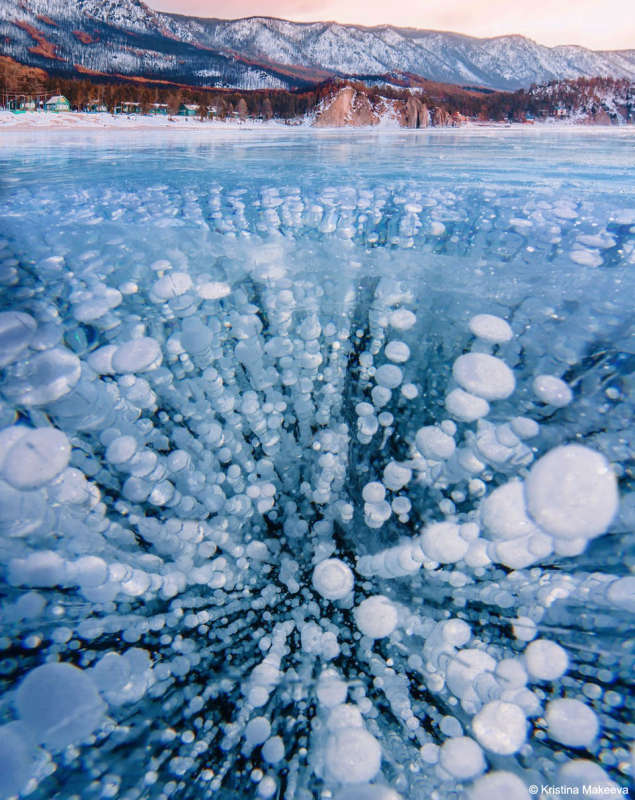
|
Credit & Copyright: Kristina Makeeva
Explanation:
What are these bubbles frozen into Lake Baikal?
Methane.
Lake Baikal, a
UNESCO
World Heritage Site in
Russia,
is the world's largest (by volume), oldest, and deepest lake,
containing over 20% of the world's fresh water.
The lake is also a vast storehouse of methane, a
greenhouse gas that, if released, could potentially increase the amount of infrared
light absorbed by
Earth's atmosphere,
and so increase the average temperature of the entire planet.
Fortunately, the amount of methane currently
bubbling
out
is not climatologically important.
It is not clear
what would happen, though, were temperatures to significantly increase in
the
region, or if the water level in
Lake Baikal were to drop.
Pictured,
bubbles of rising
methane froze during winter into the exceptionally
clear ice covering
the lake.
|
January February March April May June July August September October November December |
| |||||||||||||||||||||||||||||||||||||||||||||||||||||||
NASA Web Site Statements, Warnings, and Disclaimers
NASA Official: Jay Norris. Specific rights apply.
A service of: LHEA at NASA / GSFC
& Michigan Tech. U.
Based on Astronomy Picture
Of the Day
Publications with keywords: Earth
Publications with words: Earth
See also:
- Earthset from Orion
- APOD: 2025 October 12 Á All the Water on Europa
- APOD: 2025 December 8 Á Flying Over the Earth at Night
- APOD: 2025 September 7 Á All the Water on Planet Earth
- APOD: 2025 June 15 Á Two Worlds One Sun
- APOD: 2024 December 29 Á Methane Bubbles Frozen in Lake Baikal
- Interplanetary Earth
